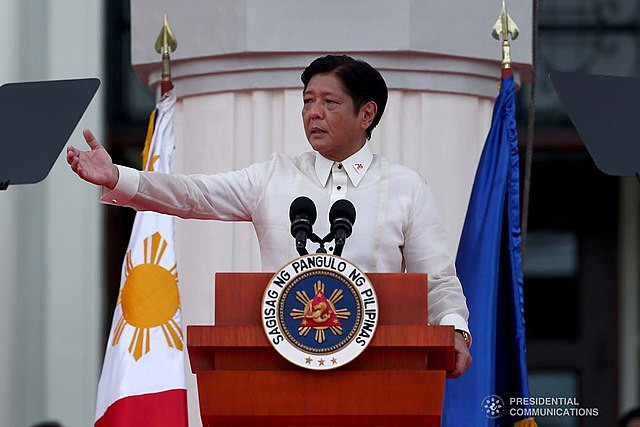Philippine President Ferdinand Marcos Jr. has called for a "paradigm shift" in addressing the South China Sea disputes, highlighting the limited progress made through traditional diplomatic channels.
During an interview with Mainichi Shimbun, shared with Philippine media, Marcos expressed his concern over the trajectory of diplomatic efforts with China, emphasizing the need for a new approach to resolve the territorial conflicts in the South China Sea.
Marcos, who recently attended a summit in Tokyo with the Association of Southeast Asian Nations (ASEAN), reiterated the Philippines' commitment to avoid violent conflict while pursuing dialogue with partners to establish a joint position regarding the West Philippines Sea, which refers to parts of the South China Sea within the Philippines' exclusive economic zone.
This statement comes amid escalating tensions following a recent ship collision near a disputed shoal, leading to a heated exchange of accusations between Manila and Beijing.
China's response, articulated by Foreign Ministry spokesperson Wang Wenbin, acknowledged the tension but emphasized the broader context of the countries' relations. Wang stated that China remains open to dialogue and consultation to manage differences, despite the ongoing disputes. He highlighted China's willingness to continue discussions with the Philippines, keeping diplomatic channels open.
In addition to the Philippines, several ASEAN members, including Vietnam, Malaysia, and Brunei, have overlapping claims with China in the South China Sea, a critical maritime route for over $3 trillion in annual ship-borne trade. A 2016 ruling by the Permanent Court of Arbitration dismissed China's claims as lacking legal basis, a decision supported by the United States but rejected by Beijing.
Further complicating the situation, China has issued a stern warning to the Philippines regarding its territorial claims. Chinese Foreign Ministry spokesperson Wang Wenbin accused Manila of breaching agreements and heightening tensions, criticizing its efforts to involve external forces in the dispute. The Philippines' actions, such as regular supply missions to the BRP Sierra Madre in the Spratly Islands, have been a particular point of contention, with China deeming the Philippines' 1999 grounding of the warship as illegal.
As the Philippines strengthens its military ties with the U.S. and Japan, concerns have been raised about the potential consequences of escalating tensions. The Global Times, a Chinese nationalistic tabloid, warned of the risks involved for the Philippines in aligning too closely with major powers like the U.S. and Japan, suggesting that these alliances could backfire.
President Marcos Jr.'s call for a new approach reflects the complexity of the geopolitical challenge posed by the South China Sea disputes. The situation requires careful navigation of international relations and territorial claims, balancing the need for regional stability with national interests. As the Philippines seeks to redefine its strategy, the international community watches closely, aware of the significant implications for regional peace and security.





